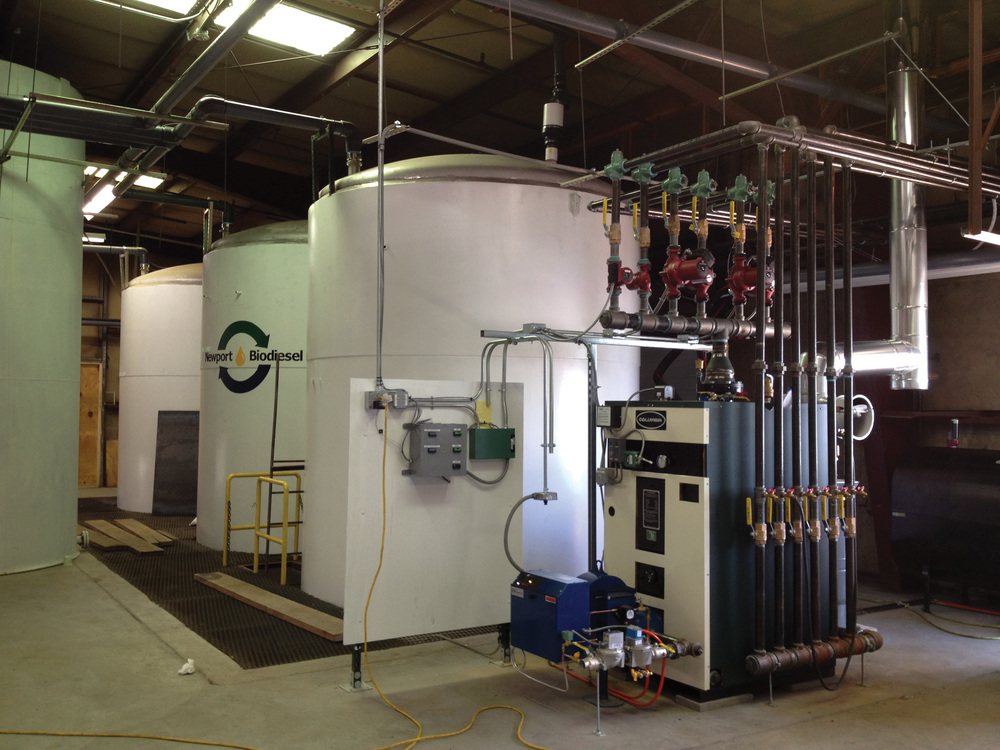Renewable in Rhode Island

PHOTO: NEWPORT BIODIESEL
July 17, 2012
BY Erin Krueger
Bob Morton, managing partner of Newport Biodiesel, says his company is experiencing strong demand for biodiesel, so much so that the decision was made to triple the size of the plant. The expansion, which was completed this spring, increased capacity from 500,000 gallons to 1.5 MMgy.
Morton notes that the upgrade was supported by the Rhode Island Economic Development Corp., which provided some funding to complete the project. Newport Biodiesel also invested in the expansion.
Advertisement
Advertisement
A large part of the build-out included upgrading tankage, both within the production facility and adding capacity for waste vegetable oil storage. The plant features batch processing and is currently running two 2,500-gallon batches daily. Morton said there is potential to run additional batches in the future.
Newport Biodiesel primarily supplies fuel within Rhode Island, but some is also sold into the Massachusetts market, he says. The region features a strong Bioheat market, Morton adds. The plant generally sells into the Bioheat market from October through April, and sells into the transportation fuel market the remainder of the year.
Pending legislation within the state of Rhode Island could help make the local Bioheat market even stronger. The bill, known as the Ultra-Low Sulfur and Biodiesel Heating Oil Act of 2012, aims to encourage biofuel production within the state, while also helping to create jobs, improve air quality and encourage the installation of more efficient heating equipment.
Advertisement
Advertisement
Under the legislation, all heating oil sold within the state as of this July would require at least 2 percent biodiesel. On July 1, 2013, the mandate would increase to require a B3 product. In July 2014, B4 would be required, with B5 in 2015.
Morton says he supports the measure, noting that it would help stabilize the Rhode Island marketplace. He also stresses that the mandate would not only benefit biodiesel producers, it would also benefit oilheat dealers. While many home heating oil suppliers have experienced trouble competing with cheaper, cleaner natural gas, blending oilheat with biodiesel creates a greener product that can better compete with the emissions profile of natural gas, making it more attractive to consumers.
—Erin Voegele
Upcoming Events





